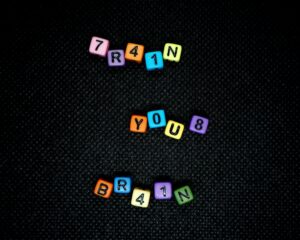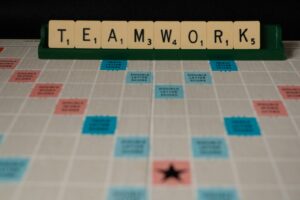Our brains are powerful, but just like any other organ, they need regular exercise to stay in top condition. From boosting memory to enhancing creativity, the benefits of mental stimulation are immense. Problem-solving is one of the most effective ways to keep your brain healthy and functioning at its best. In fact, research consistently shows that cognitive challenges—whether mental puzzles, games, or real-life challenges—can help prevent cognitive decline, reduce stress, and even improve emotional well-being.
One fun and exciting way to engage your brain is through escape rooms. These immersive, puzzle-filled experiences have become increasingly popular for groups looking for adventure, entertainment, and teamwork. Mind Busting Escape Rooms, located in Northlake/Tucker, offers unique, thought-provoking games that engage participants in problem-solving tasks, memory exercises, and strategic planning. Not only are they fun, but they also provide a workout for your brain, helping to keep it sharp, agile, and healthy.
In this blog, we will explore the relationship between problem-solving and brain health, and how participating in escape rooms like those at Mind Busting Escape Rooms can support cognitive well-being.
The Science Behind Problem Solving and Brain Health
The human brain is a highly dynamic organ that can adapt and rewire itself based on experiences, a phenomenon known as neuroplasticity. Neuroplasticity is the brain’s ability to form and reorganize synaptic connections, especially in response to learning, experience, and environmental changes. When you engage in mentally stimulating activities—like solving puzzles or playing strategic games—you encourage neuroplasticity, which can enhance memory, improve learning abilities, and even protect against cognitive decline.
Problem-solving, specifically, activates several key cognitive functions, all of which are critical for maintaining brain health:
Memory: When you engage in problem-solving, you often need to recall past experiences, details, or information in order to complete the task. This helps strengthen both your short-term and long-term memory. Studies have shown that memory-related tasks can help maintain cognitive function, especially in aging adults.
Executive Functioning: Executive functions are higher-level cognitive processes that enable decision-making, planning, and problem-solving. These functions rely on the brain’s prefrontal cortex and are involved in activities that require thinking ahead, organizing thoughts, and staying focused. Escape rooms, with their time-sensitive nature and complex puzzles, require participants to use and strengthen these executive functions.
Critical Thinking and Decision-Making: Problem-solving activities challenge your brain to evaluate multiple solutions, weigh options, and make decisions based on available information. This sharpens your critical thinking and decision-making abilities, which are essential for both everyday tasks and more complex, high-stakes situations.
Creativity: Solving puzzles often requires thinking outside the box and coming up with creative solutions. This fosters cognitive flexibility and innovation—qualities that are essential for tackling new problems, learning new skills, and adapting to change.
Attention and Focus: To solve complex problems, the brain must stay focused and ignore distractions. This improves attention span and the ability to concentrate, skills that are necessary for everything from work to social interactions.
By regularly engaging in activities that require these skills—such as puzzles, games, or challenges—you help maintain and even improve brain health. When you face new problems or tasks, your brain is forced to adapt and form new connections, keeping it active and strong.
How Escape Rooms Like Mind Busting Escape Rooms Help Improve Brain Health
Mind Busting Escape Rooms offers an ideal environment for brain stimulation through problem-solving. These immersive experiences combine teamwork, time pressure, and complex puzzles that engage the brain on multiple levels. Here’s how participating in escape rooms can directly benefit your cognitive health:
1. Enhancing Memory and Recall
Memory is essential for problem-solving, and escape rooms require a lot of it. Participants are often given clues that they must remember and apply throughout the game. Whether it’s recalling numbers, remembering specific patterns, or connecting clues from earlier in the game, your memory is continuously exercised.
In an escape room, you are often faced with multiple tasks that require attention to detail. You might need to remember key information from different rooms or keep track of numerous puzzle elements at once. This dynamic environment challenges your short-term and working memory, reinforcing neural connections that help you recall information more effectively.
2. Sharpening Critical Thinking and Problem-Solving Skills
Escape rooms are designed to challenge your critical thinking abilities. Each puzzle or clue you encounter requires you to think analytically, strategize, and evaluate various solutions. Whether it’s figuring out how to unlock a door, solving a cipher, or piecing together a riddle, each challenge pushes you to use your reasoning skills and logical thinking.
At Mind Busting Escape Rooms, the variety of challenges you encounter—ranging from puzzles that require mathematical skills to those that test your observational abilities—ensures that your brain stays engaged. Critical thinking is essential in these games, and the more you exercise it, the better your brain becomes at solving complex problems both in and out of the game.
3. Boosting Creativity and Innovation
Problem-solving in an escape room often requires creativity and thinking outside the box. For instance, sometimes the solution isn’t immediately obvious, and you have to think in new ways or use objects in unconventional manners to solve a puzzle. This kind of thinking exercises the brain’s creative faculties and fosters cognitive flexibility, helping you adapt to new problems more effectively.
The creativity required in escape rooms is not just about solving puzzles in unique ways; it’s also about collaboration. Many escape room challenges require teamwork, where individuals may bring different perspectives and solutions. This encourages creative brainstorming and helps individuals think about problems from various angles.
4. Strengthening Executive Functions
Escape rooms provide a perfect environment to exercise executive functions, which include skills like planning, organization, time management, and decision-making. Since escape rooms are often timed, participants must make quick decisions, organize their thoughts, and prioritize tasks efficiently to solve puzzles before time runs out.
At Mind Busting Escape Rooms, teamwork plays a huge role in the game’s success. Players must communicate clearly, delegate tasks, and coordinate their actions to reach a shared goal. These exercises strengthen organizational skills, time management, and leadership—functions of the brain that are critical for managing daily responsibilities.
5. Increasing Focus and Attention
The thrill of racing against the clock adds an element of urgency to the challenges within escape rooms, which can actually improve your focus and attention. In a game, it’s crucial to remain focused on the task at hand to successfully solve puzzles. Participants must tune out distractions, concentrate on the clues, and think critically to reach their goals. This focus boosts your ability to stay attentive in other areas of life, which is especially important for maintaining cognitive sharpness as you age.
By actively engaging in the mental challenges presented during an escape room, your brain learns to stay alert and focused, even in stressful situations. This kind of cognitive training helps you become more efficient at processing information in real life.
The Social Benefits of Escape Rooms
While the cognitive benefits of escape rooms are clear, the social aspects of these activities also contribute to better mental health. Mind Busting Escape Rooms offers an opportunity to engage with friends, family, or colleagues in a shared experience that fosters communication, collaboration, and bonding. These social interactions not only help reduce stress but also provide emotional support, both of which are essential for overall brain health.
When people work together to solve problems, they experience positive feelings of achievement, which contribute to the release of dopamine—a neurotransmitter that enhances mood, motivation, and pleasure. This social interaction combined with problem-solving makes escape rooms a unique and powerful experience for mental wellness.
The Long-Term Cognitive Benefits of Escape Rooms
Engaging regularly in mentally stimulating activities like escape rooms can have lasting effects on your brain health. Regular problem-solving enhances neuroplasticity, which in turn helps improve cognitive reserve—the brain’s ability to cope with aging or neurological challenges. Essentially, the more you engage in brain-stimulating activities, the more resilient your brain becomes to potential cognitive decline.
Moreover, the collaborative nature of escape rooms strengthens both cognitive and social functions, which are critical for maintaining mental health. Regular participation in activities that require complex thinking, creativity, and communication helps keep your brain agile and sharp.
Conclusion: Keep Your Brain Healthy with Mind Busting Escape Rooms
Mind Busting Escape Rooms offers an excellent opportunity to boost your brain health through engaging and fun problem-solving challenges. From enhancing memory and critical thinking to promoting creativity and social interaction, escape rooms provide a comprehensive mental workout that helps keep your brain sharp.
Next time you’re looking for an activity that’s both fun and beneficial for your brain, gather your friends or family and head to Mind Busting Escape Rooms. The problem-solving challenges you face will not only help you escape the room but also contribute to long-term cognitive health, ensuring your brain stays sharp for years to come.




















